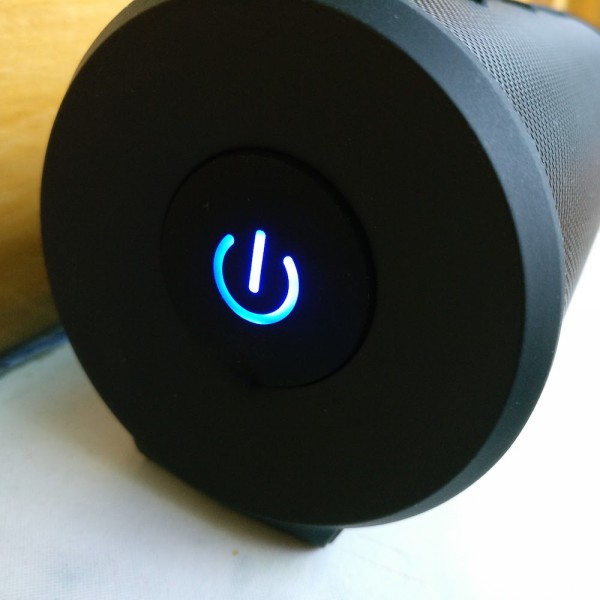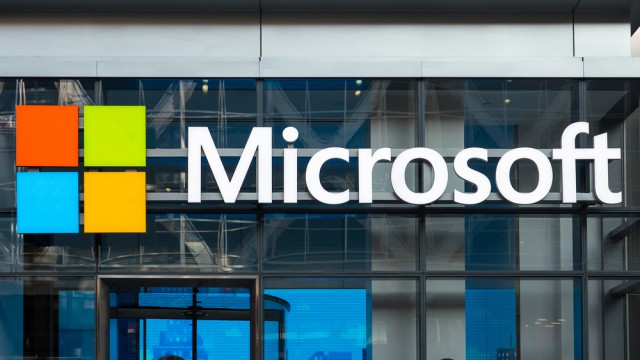
New hacker collective targets SWIFT system
Following the $81 million cyberattack in February, a second hacking group has emerged with the intention of exploiting the SWIFT money transfer system to rob banks.
A report from the security firm Symantec has revealed that these cyberattacks have occurred since January and have targeted companies located in the US, Hong Kong, Australian and other countries. The firm has detected 74 different computer infections that suggest that around 100 organizations have been affected by these attacks so far.

Linksys unveils open source WRT3200ACM Gigabit MU-MIMO Tri-Stream 160 Wi-Fi router
The blue 'WRT' routers from Linksys are iconic. These open source-friendly devices have been very popular with in-the-know consumers that enjoy flashing alternative firmware, such as OpenWrt or DD-WRT. This can sometimes provide added features and functionality.
Today, Linksys unveils its latest such offering, the AC3200 WRT Gigabit MU-MIMO Wi-Fi Router (WRT3200ACM). The 802.11AC device features Tri-Stream 160 technology, 512MB DDR3, and a 1.8 GHz Dual Core processor. Despite all of these amazing specifications, it is surprisingly affordable.

Hackers use old SSH vulnerability to attack Internet of Things devices
There is a 12 year old vulnerability in OpenSSH that hackers are now using to attack Internet of Things (IoT) devices and remotely generate traffic. Akamai Technologies' researchers Ory Segal and Ezra Caltum have identified the old vulnerability and dubbed it SSHowDowN Proxy.
The researchers say hackers are using it to target CCTV, NVR, and DVR devices, satellite antenna equipment, networking devices such as routers or hotspots, and internet-connected NAS devices.

Ubuntu Linux 16.10 'Yakkety Yak' is here! Download the Windows 10 alternative now
Ubuntu is a wonderful operating system. Depending on your needs, it can be a better choice than Microsoft's Windows 10. More and more people live in the web browser, and Ubuntu can run both Chrome and Firefox. Need a word processor? The ability to edit spreadsheets? The wonderful LibreOffice is included -- no need to spend money on a subscription-based office package. There are countless free packages available too. You can even buy laptops pre-loaded with the OS from companies like Dell and System76.
Today, Ubuntu 16.10 'Yakkety Yak' sees release. It has many significant updates (you can read the release notes here), such as Linux kernel 4.8 and LibreOffice 5.2. The best part about this version of the operating system, however, is that it isn't exciting. Once again, home users will likely be bored by this Ubuntu upgrade, but that is a good thing -- Canonical does not do change for the sake of change.

How to fix a broken Windows 10 Start menu
If you’re having problems getting the Windows 10 Start menu to open, or it’s just not working as it should, you’re not alone. Quite a few people have encountered issues following upgrading to the new OS, or updating to a new build.
Rebooting might fix temporary problems, but if it doesn’t we have some more advanced solutions for you to try.

New endpoint solution protects privileged access credentials
Credentials for privileged access accounts are a prime target for cyber attackers and they can often be stolen from vulnerable endpoints.
Privileged account management specialist Thycotic is tackling this problem by launching Privilege Manager for Windows, which allows IT admins to implement a wide array of policies and controls that best match their needs.

DKnight Big MagicBox portable Bluetooth speaker review
Smartphone users who want to enjoy their favorite music through a portable Bluetooth speaker have a sea of options to choose from these days. Many accessory makers offer small setups that promise to deliver a much higher sound quality than the built-in speakers, and in plenty of cases at a pretty reasonable cost too.
DKnight is no different. Its Big MagicBox setup, which features dual 10W drivers and "advanced bass enhancement technology", claims to offer "exceptional sound quality" and is touted as "the most competitive speaker" in its segment of the market. But, just how good is it in real life?

Healthcare companies are facing a cyber security crisis
Many industries have found that the rapid expansion in demand for digital information has outpaced efforts to keep the data secure. This is a particular issue for healthcare organizations which handle confidential records yet have seen some headline breaches in recent years.
UpGuard, the company behind the CSTAR security preparedness score for enterprises, has released a new report which provides fresh data on the security failings of companies in the healthcare industry.

How to successfully optimize backups
When it comes to the task of backing up data, many people wonder where to start. Questions arise relating to the data’s value and if it needs to be stored in a place that is easily reached but costly. On the flip side, those doing backups must ask themselves how often the particular data in question needs to be utilized. If it is not something that is needed daily, storage on a tape drive may become a consideration.
At any rate, administrators and clients alike must understand that the location of data storage is incredibly important and directly relates to the efficiency of the whole system. One of the issues that sometimes arises is when non-valuable data takes over space on precious primary storage. Not only is this highly coveted place being occupied in a manner that is not wise, but storing this kind of data there makes the overall backup operations inefficient.

Lucidworks uses IBM Watson to unlock enterprise data
Businesses today face having to deal with huge quantities of documents and data. Gaining meaningful insights from this pool of information can therefore be a major challenge.
Enterprise search specialist Lucidworks is aiming to make sense of things by using the IBM Watson Developer Cloud platform for its Fusion application framework to help developers create enterprise discovery applications so companies can better understand their data.

Vera Bradley is the latest retailer to fall victim to hackers, extent unknown
2016 has been a long year for retailers, with a number of them being relieved of customer data by hackers looking mostly for credit card information. Wendys, Eddie Bauer, Hard Rock Hotel and Casino Las Vegas and others have all been forced to step forward in an effort to protect customers, though largely done after the fact.
Now the latest victim has been announced as retailer Vera Bradley reveals it too has suffered a serious breach of its payment processing system.

Buying a new PC from Dell shouldn't be this hard [Update]
Given how the PC market is in decline, and some consumers may never buy a new system again, you would think PC manufacturers would be keen to court new buyers. But not Dell.
Yesterday, I purchased an Inspiron i7 7000 Series 2-in-1 from Dell’s website. I entered my details and at the end of the process was presented with an internet receipt number, and the promise that an order acknowledgement would be emailed to me shortly. From there it was downhill all the way.

Twitter experiments with replacing Moments with a new Explore feature
The Moments feature could be set to disappear from Twitter's mobile apps. Having only recently announced the roll out of a curation option to everyone, Twitter is now experimenting with replacing it with a more inviting Explore feature.
Speaking to Mashable, Twitter confirmed that a "content discovery"-focused Explorer tab could replace Moments in the future. For now, though, there is an experimental change visible to some iOS and Android users that sees the Moments and Explore tabs show up side by side.

Microsoft will roll out Dynamics 365 in November
Microsoft's new Azure-hosted, combined CRM and ERP service, Dynamics 365 will begin its rollout on November 1 and the company will show off some of the features of its new service in a live-streamed event this week.
In July, the company announced its plans for Dynamics 365 and began to inform its reseller partners regarding what the service would offer. At that time it was revealed that Dynamics 365 would be a combination and redesign of the capabilities of Dynamics CRM, Dynamics AX and Project Madeira which is now known to be a new small-business software as a service based on the Microsoft Dynamics NAV platform.

Samsung offers Galaxy Note7 owners $100 to stick with the company as it expands product recall
The cost of Samsung's explosive and disastrous Galaxy Note7 launch just keeps on mounting up. Having previously offered Galaxy Note7 owners $25 for anyone seeking a refund on their handset or switching to another brand, the company is now dangling the promise of a $100 sweetener to anyone willing to try their luck with another Samsung phone.
The expansion of the refund and exchange program starts today, and is accompanied by near-grovelling from Samsung president and COO Tim Baxter. Samsung is currently counting the financial cost of the recall -- but would the promise of a nice, crisp Benjamin be enough to entice you back?



